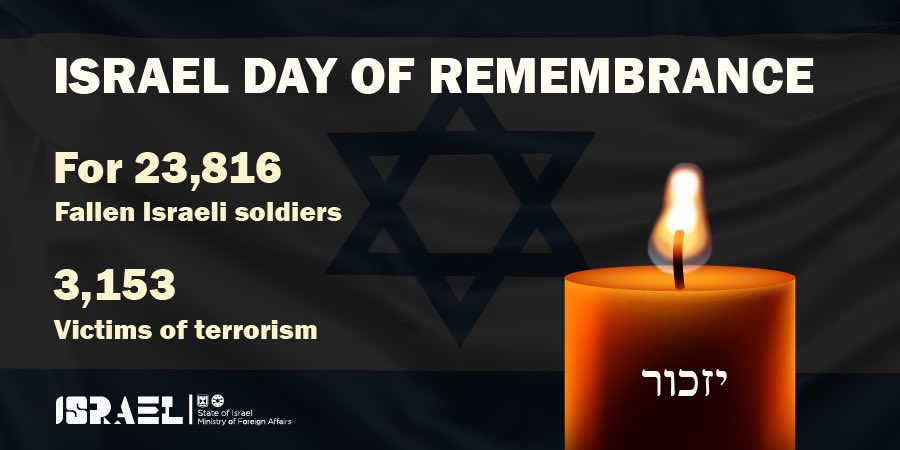JPost Editorial: Independence Day – Israel's 72nd birthday
Despite these daunting challenges, Israelis have by and large proved themselves exceptional at coping with the extreme situation and adhering to the strict regulations that have been imposed.President Rivlin's greeting for Israel's 72nd Yom Haatzmaut / Independence Day
And although we, as a newspaper, have been critical of government policy and efforts in combating the deadly pandemic, it must be acknowledged that this has been uncharted territory that ministries and government officials have been thrust into. And their exhaustive, well-intended efforts must be applauded, while at the same time scrutinized.
Even more deserving of our thanks and gratitude are the thousands of healthcare workers who have placed themselves and their families on the front lines of danger to treat the thousands of corona patients in the nation’s hospitals and emergency rooms. The same goes for law enforcement officials and IDF soldiers who have worked tirelessly to help those in need.
The question is, what kind of Israel will emerge from the coronavirus challenge? One unexpected outcome of this crisis is that we have become a more caring people.
Will we fall back into the old patterns of conspicuous consumption and tall fences between neighbors? Or will we use the lessons of the past two months to help forge a more cohesive and compassionate society, which has seen signs of emerging?
At age 72, Israel can be proud of so much. And thanks to corona, those most simple attributes that form the basis of what makes Israel a great country have come to the forefront. Let’s hope they stay with us.
Israel at 72: A country under curfew salutes those fighting the coronavirus
Israel on Wednesday celebrated its 72nd year of independence without the traditional public revelry associated with the holiday as the coronavirus pandemic continued to impose itself on national life.Israeli Air Force Honors Medical Staff on Israel's 72 Independence Day
In a display of appreciation, official events were dedicated in honor of medical staff working to combat the virus and the Israeli Air Force gave a sky-high salute to those on the front lines.
The air force, which usually shows off its inventory of jets and helicopters in a cross-country flyover, instead only sent out a squad of four stunt planes that followed a flight path over the country’s hospitals and medical centers.
At each site the planes looped and circled in an expression of the nation’s appreciation for medical workers.
The IDF canceled the traditional flyover in a bid to get people to stay at home, as a nationwide curfew went into effect from Tuesday afternoon until Wednesday evening, to prevent large gatherings as Israelis celebrate the founding of the state.
Israelis were told to stay at home and avoid crowding the streets and parks for barbecues and public parties, in a bid to avoid a fresh outbreak of the deadly pathogen.
In some places, the army and other security agencies also paraded jeeps and emergency vehicles by homes instead of setting up displays around the country and at bases, as is done in most years.
Independence Day is celebrated each year on the Hebrew date of the establishment of Israel in 1948.
Independence Day celebrations began on Tuesday night as the country transitioned from the sober Memorial Day.
The annual torch-lighting ceremony, a centerpiece of the shift to Independence Day, was prerecorded for the first time at Jerusalem’s Mount Herzl military cemetery and took place without an audience present. Mount Herzl, along with all other military cemeteries in the country, was locked on Monday to all visitors, to prevent gatherings on the annual remembrance day for Israel’s 23,816 fallen soldiers and terror victims.
What Would the World be without the State of Israel?
Israel’s creation changed the life of every Jew throughout the world, whether they were Zionists or religious. It made everyone stand up taller and feel safer. And its continued survival led to a movement among the millions of Jews in the former Soviet Union to demand their rights after half a century of oppression.
While we worry about a revival of anti-Semitism in our own day in which Israel is the stand-in for traditional anti-Jewish stereotypes and scapegoats, without it, the fate of contemporary Jewry would be immeasurably worse. Those who grew up in the post-1948 world simply have no idea how much it changed the way Jews are thought of and treated. Israel was not merely the place of refuge for Holocaust survivors and nearly a million Jews from the Arab and Muslim world all seeking freedom; the creation of a home for the Jewish people also made it easier for Jews to live as equals even if they chose to remain in the Diaspora.
To its detractors, Israel is a disappointment because it fails to live up to some unrealistic standard of morality unmet by any democracy at war, as it has been for every moment of those 72 years. But the real Israel remains the only democracy in the Middle East, as well as a haven for the arts and the sciences, and a “startup nation” that is at the cutting edge of so many advances for humanity.
Israel is a beacon of freedom for Jews everywhere, as well as a guarantor that the cycle of hate, oppression and slaughter that characterized Jewish history for 20 centuries would finally end. As such, it deserves the support of decent people—Jewish and non-Jewish—everywhere. While some mired in the fantasy world of anti-Semitism may dream about a world in which it never existed, the hope for the eradication of the one Jewish state on the planet is a manifestation of hate, not science fiction.



































